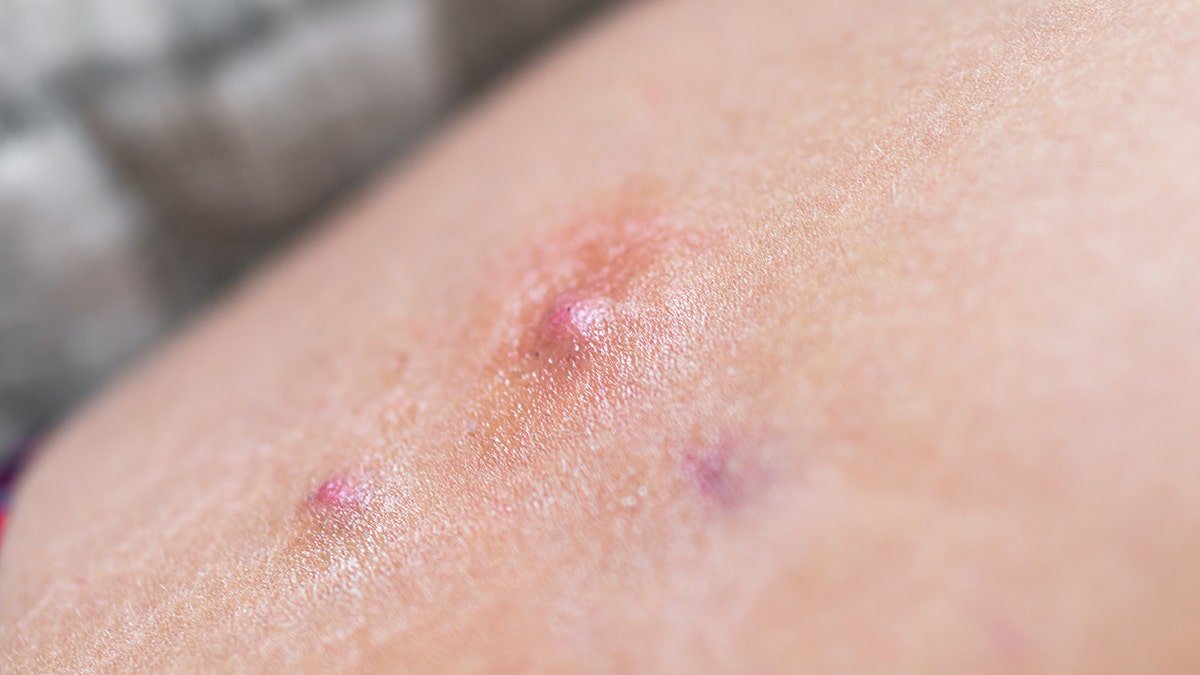NEWYou can now listen to Fox News articles!
GLP-1 weight loss and diabetes drugs, like Ozempic and Wegovy, have been shown to reduce the symptoms of a painful skin condition.
Hidradenitis suppurativa, also known as acne inversa, is a condition that causes small, painful lumps to develop under the skin, according to Mayo Clinic.
These lumps typically develop in areas of the body where the skin rubs together, and can be recurrent.
POPULAR WEIGHT-LOSS MEDICATION COULD RELIEVE PAINFUL ARTHRITIS SYMPTOMS, DOCTORS REPORT
Hidradenitis suppurativa tends to start after puberty and before age 40, persisting for many years and potentially worsening over time, according to Mayo Clinic. Women are three times more likely to develop the condition.
Medical and surgical therapy can help manage the condition and prevent complications.
GLP-1 medications could improve certain skin conditions, experts found. (iStock)
A new study, published in the journal JAMA Dermatology, analyzed how GLP-1 medication could impact this skin condition.
The French researchers noted that hidradenitis suppurativa is typically associated with overweight and obesity, affecting 50% of those patients.
WHO SHOULD BE TAKING WEIGHT-LOSS DRUGS? DOCTORS SHARE BEST CANDIDATES
The experts noted that weight loss, whether through diet or obesity surgery, has a “beneficial effect” on the skin condition for most patients.
As GLP-1s have demonstrated “major efficacy” in weight loss, the researchers hypothesized that the medications could also have anti-inflammatory properties that may help with skin symptoms.

Researchers found that patients with obesity and diabetes experienced a reduction in symptoms when taking a GLP-1. (iStock)
The study evaluated 66 patients with hidradenitis suppurativa who were taking a GLP-1 drug, following up at an average of 18.5 months later.
Nearly 90% of the study participants had diabetes, and their average BMI was 39.4. Treatment for the skin condition was initiated for 53% of the patients.
IS OZEMPIC RUINING YOUR TEETH? WHAT TO KNOW ABOUT IMPACT ON DENTAL HEALTH
After six months, 54% of patients had a reduction in symptoms.
By the last consultation, 67% of the participants reported reductions and 60% had decreased pain.

Hidradenitis suppurativa, shown here, typically occurs before age 40 and can worsen with time. (iStock)
‘Cautious optimism’
Dr. Brendan Camp, a dermatologist in New York, reacted to these study findings with “cautious optimism.”
“It is impressive that, over a median of 18.5 months of follow-up, GLP-1 receptor agonists led to significant reductions in HS severity, flares and pain in patients, most of whom were obese and had diabetes,” he said in an interview with Fox News Digital.
CLICK HERE TO SIGN UP FOR OUR HEALTH NEWSLETTER
Camp confirmed how GLP-1-aided weight loss can reduce “mechanical friction” and “adipose-driven inflammation in susceptible areas” where skin conditions can occur.
GLP-1s also appear to have anti-inflammatory effects, which could potentially enhance skin healing and reduce the frequency of inflammatory skin disease flares, he said.

A dermatologist said he does not currently recommend GLP-1s solely for HS or other skin conditions, as it’s not prescribed for this indication. (iStock)
Potential limitations
Camp pointed out that while the study represents a “promising therapeutic signal,” its retrospective design “limits causal conclusions.”
“Solid confirmation via randomized clinical trials is critically needed,” he said.
CLICK HERE TO GET THE FOX NEWS APP
Additionally, most participants in the study were obese and diabetic, which means the results may not be applicable to all patients with hidradenitis suppurativa.
“Future randomized trials are required to determine who will benefit most and to establish safety and effectiveness in the wider HS population,” Camp said.
“GLP-1 therapies remain investigational for hidradenitis suppurativa and are not an approved indication.”
The dermatologist does not currently recommend GLP-1s solely for hidradenitis suppurativa or other skin conditions.
“Patients with HS should know that while these findings are hopeful — showing improvements in severity, flare frequency, pain and quality of life over months of treatment — GLP-1 therapies remain investigational for HS and are not an approved indication,” he noted.
For more Health articles, visit foxnews.com/health
Those who qualify for GLP-1 treatment for diabetes or obesity, however, may find that these drugs offer the “added potential benefit of HS symptom improvement.”
“Off-label initiation without a clear indication should be approached with caution — weighing cost, side effects and lack of definitive trial evidence — and only under the guidance of both a dermatologist and prescribing provider,” Camp added.



